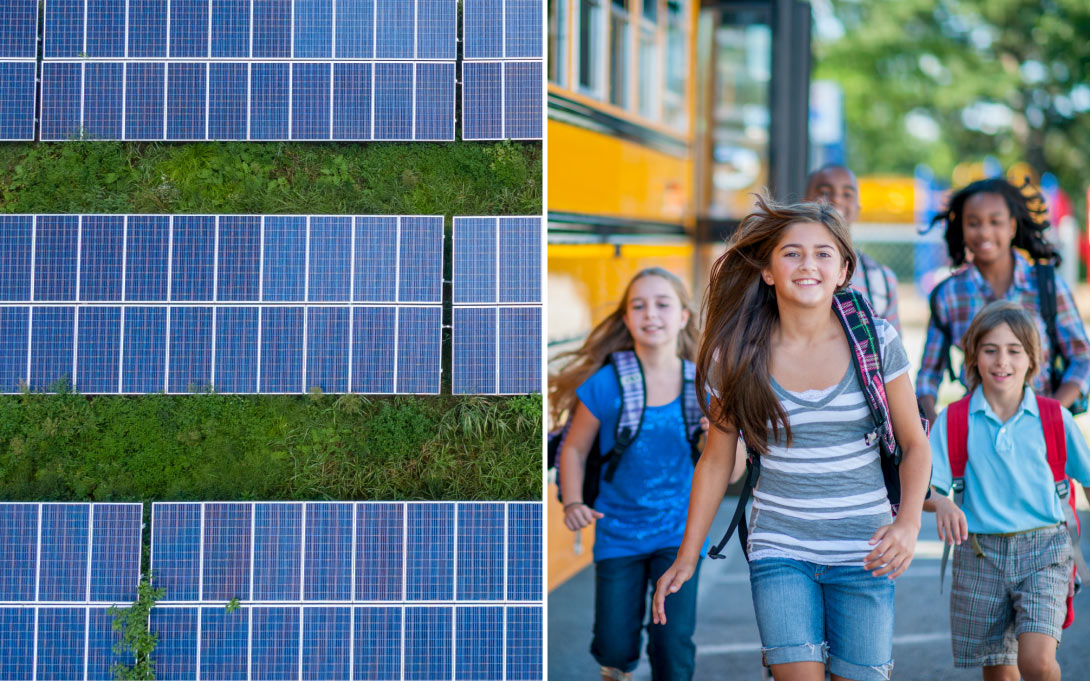
With new leading-edge research and faces at the school, the Ford School builds depth in two key policy areas.
Energy and the environment
Economics, political science, psychology, and community engagement are at the roots of the Ford School’s interdisciplinary approach to energy and the environment and influencing policy at all levels.
- Based on Catherine Hausman’s work, the State of Washington passed legislation creating economic incentives for utilities to fix natural gas distribution leaks.
- Carbon pricing expert Barry Rabe regularly engages with leaders from public, private, and nonprofit organizations interested in possible paths toward policy change.
- As a social/environmental psychologist, Kaitlin Raimi has found that messages about private sector action on climate change can increase support for carbon reduction among conservatives and moderates.
- This year, two Ford School students advised U-M’s Carbon Neutrality Commission on reducing food waste on campus. Ford School professors Jennifer Haverkamp (co-chair) and Barry Rabe served on the commission.
Read these stories and more on our new energy & the environment impact page.
Education policy
Our faculty, staff, and students use rigorous analytical frameworks and practical engagement to improve educational outcomes and reduce inequalities. Two research centers lead the charge at the Ford School: the Education Policy Initiative (EPI) and Youth Policy Lab (YPL).
In the past year:
- The Ford School hired two new faculty with expertise in education policy: Christina Weiland, who has expertise in early childhood education, and Katherine Michelmore, who co-developed the HAIL Scholarship and is an expert on the social safety net and causal research methods.
- EPI provided Michigan education data to researchers from 18 different universities and think-tanks around the country on 65 unique projects.
- EPI secured a $4.6 million renewal grant for its causal inference doctoral training program, which teaches students to evaluate educational programs in partnership with education agencies around the country.
- Susan Dynarski and EPI evaluated the U-M’s HAIL Scholarship, a creative new approach they helped design to make college more accessible to students from poor and working class backgrounds.
- Brian Jacob and YPL staff conducted a labor market assessment in Kalamazoo to assist a new career and technical education center, an evaluation of the Michigan College Access Network, and an evaluation of the Detroit Promise Path scholarship program with MDRC.
- YPL and the Child and Adolescent Data Lab hosted a virtual event with 40+ key stakeholders to develop their agenda to impact the school-to- prison pipeline.
- YPL partnered with NAF, an educational nonprofit that uses career exploration to prepare high school students for postsecondary education and/or the workforce. YPL analyzed the characteristics and outcomes of their participants in Detroit, finding that NAF students outperform their peers in high school outcomes and college enrollment.
Read these stories and more on our new education policy impact page.

Dynarski heads home
Susan Dynarski will be moving back to her hometown and joining the faculty of the Harvard School of Education this fall. Sue has made a tremendous impact on the Ford School, on the University of Michigan, and most importantly, on the issues of educational inequities about which she cares so deeply. We will miss her. Visit Sue’s tribute page to read about her impact.
Alumni: please visit our site to wish Professor Dynarski well, tell her how you’re using the lessons she taught you, and share how she influenced your work or career. A Toast to Susan Dynarski.
Below, find the full, formatted Spring 2021 edition of State & Hill.
Click here to return to the Spring 2021 S&H homepage.
More news from the Ford School